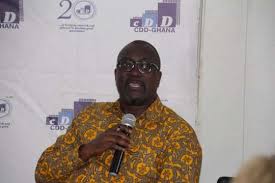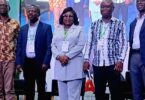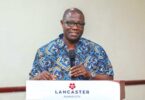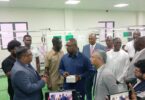Ahead of the upcoming general elections next year, political parties have been called upon to proactive to embrace strategic thinking in their quest to enhance development and welfare of the ordinary citizens.
This call was made by the Executive Director of Ghana Centre for Democratic Development Professor Henry Kwasi Prempeh in Accra.
Interestly, strategic thinking is a process that defines the manner in which people think about, assess, view, and create the future for themselves and others. Strategic thinking is an extremely effective and valuable tool.
Speaking as a panel member at a forum to mark the International Democracy Day organised by his institution, CDD-Ghana, Prof Prempeh revealed that, political parties are regarded as an organisational set up for hard thinking that drives development, and if their manifestoes were gradually becoming important, then there was a need to use it as a vehicle for getting citizens’ inputs.
Meanwhile, International Democracy Day which was established through a resolution passed by the United Nations General Assembly in 2007 to encourage governments to strengthen and consolidate democracy is celebrated around the world on 15th September each year.
The forum, held under the theme: “Making Democracy Work for the People”, was part of the Centre’s contribution towards promoting a democratic society that peruses and delivers on inclusive development; and as well intended to trigger conversations about some very important policy issues.
Recounting how in the past, manifestoes did not use to matter very much to people as political parties just threw anything in to win an election and afterwards, do contrary to what is in their manifestos, Prof Prempeh indicated that, political parties are gradually realizing that they are roughly equally matched in their strongholds.
“Political parties have come to the realization that, their strong holds only can not make them win, hence have to appeal to some other marginal constituencies in order to win elections; stating that they have started drawing manifestoes that appealed to people”, he asserted.
“And when they come into office, now you see that gradually they are trying to actually use the manifesto as a governing document “, he stressed.
Meanwhile,Dr Lloyd Adu Amoah, Founding Director of the Centre for Asian Studies at the University of Ghana, who was also on the panel was of the view that, political parties should become less of election machines and become agents of development.
“The parties go to sleep because the election becomes the main focus and when power is won, the attention now shifts to who gets what within the party; the effect is that they lose focus on their expected role in the development process,” he opined.
Therefore called for a reconfiguration of the total mindset and philosophy of political parties in Ghana.
On her part, Madam Kinna Likimani, Director of Monitoring and Evaluation and Special Programmes at Odekro explained that, Ghanaians need to spend some time deliberating on Civic Ghana, adding that “we are not going to get the country and democracy that we want unless we engage”.
Adding that, engaging with the civic structure could mean doing some work with civil society organisations and attending assembly meetings to be able to inform the decision making process.
Source: Ishmael Barfi








